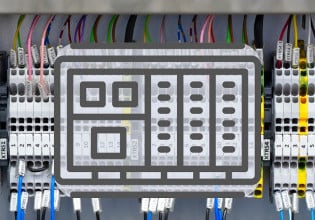How to Successfully Perform Root Cause Analysis
This article discusses the direct and indirect causes of Root Cause Analysis (RCA) and some effective solutions one can use to properly define RCA.
Root Cause Analysis is a tool used to determine the cause behind a problem, especially in regulated markets, such as the pharmaceutical industry. Many who perform RCA fail to dive into determining the actual cause of failure. The corrective actions are not always practical, and the problem arises again, lowering the RCA credibility.
It is essential to understand that the RCA is a successful tool to determine the cause of failure. The success rate of Root Cause Analysis, like all other techniques, depends upon the methodology and mindset of the involving people performing it. Common problems responsible for the failure are mentioned below.
Direct Causes Vs. Indirect Causes
The immediate cause is easy to identify, and in some cases, the investigation concludes when the root cause is determined. If the underlying cause is not recognized and treated, this results in a recurring problem. The indirect reason is usually the result of a lack of training and the organization’s lack of investment.
We can solve this problem by conducting team member training and bringing in subject matter experts that know the detailed process of RCA.
Misinformation
Information collection is the first step in conducting Root Cause Analysis, and it defines the path that the Root Cause Analysis activity will follow.
If the information is not collected accordingly, then the direction in which RCA proceeds will be wrong, hiding the actual fault and cause. This results in time and resources wasted, which means there can be an improper corrective action.
We can avoid this situation by:
- Concentrating on the expertise and skills, rather than opinions.
- Information should be collected through relevant persons, such as persons responsible in direct relationship with the process or systems like operators, supervisors, or maintenance staff.
Team Expertise
The team’s ability and expertise in performing the Root Cause Analysis directly impacts the RCA outcome. The RCA team is responsible for digging out relevant information from many people, each having a different mindset and knowledge. The team is also responsible for designing an action plan to prevent recurring problems.

Engineers collaborating as a team to perform Root Cause Analysis.
If not correctly selected, then it will affect the information collection process. There may be a chance that any team member(s) have a relationship with the sources, significantly affecting the quality of information. The team’s performance can also be affected by the source’s expertise from which the interview is conducted.
The following steps could help in avoiding this situation:
- Members from relevant departments that have experience in their fields.
- One or more members should be from the department having expertise in these activities like the Quality Management or the safety department.
Failure in Defining RCA and Effective Solutions
The team investigating the problem’s cause is also responsible for devising corrective action to solve the root. If the team ends the activity upon root identification, without working on the solution(s), this is considered incomplete.
Defining solutions can also be affected by the policies or capabilities of an organization. If an organization lacks resources or skillset needed, then becomes difficult for the team to opt for solutions that cross the limit of such an organization.
This situation can be overcome by:
- Solutions should be achievable promptly.
- The proposed solution should not open the gate for new problems.
- If there is any change required in the company’s policies, it must be briefed and communicated to higher management.
- If the proposed solution is not manageable by an in-house team, resources should be acquired or developed by investing in this area.
Failure in Implementing Corrective Actions
To complete Root Cause Analysis, the engineer must put together a report that highlights and documents each process and the corrective action to avoid such a problem in the future.
Implementing proposed solutions is the main objective behind the RCA activity.
Several things can overcome this situation. The first is having the proper know-how and training regarding the corrective action in the respective area and being able to give information about the importance, your approach, and how the corrective action should be implemented. The corrective action should start on a small scale. Set up mechanisms so they can get help in case of any problem. Practice monitoring the success or failure regarding the proposed corrective action.
By following these steps, engineers will hopefully complete Root Cause Analysis and prevent similar issues in future processes.






